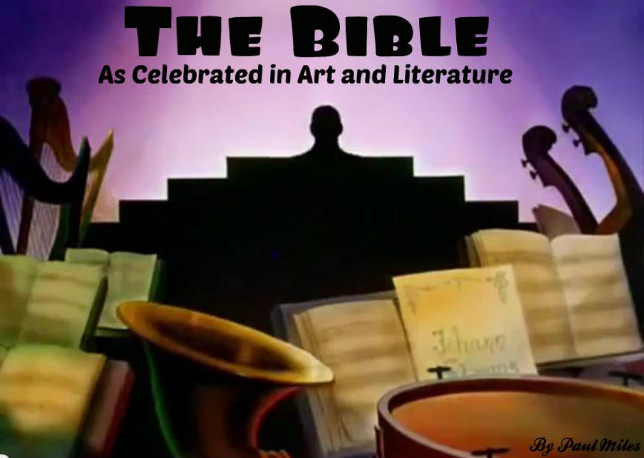By Paul Miles
In a past Bold Grace article, I gave Bible paraphrases a poor rating in favor of more literal translations. This may seem rather hypocritical, considering that I give The History Channel's miniseries, The Bible, two thumbs up, even though it is a far less accurate representation of the Bible than the Bible paraphrase, The Message. The reason is simple. Programs such as The Bible encourage people to read God's Word, while paraphrases tend to act as a substitute for the Scriptures. While watching The Bible, many Christians spotted small inaccuracies that made them go back to the text and see if, for example, Moses really met with Aaron in town, or if they met with each other in the wilderness.
My wife and I have recently had the opportunity to see Franz Joseph Haydn's The Creation performed in Ukrainian by The Kyiv Symphony Orchestra and Chorus. The Creation is a beautiful piece, but much like others who have organized renditions of Biblical narratives, Haydn took some liberties with the Biblical story for art's sake. Gabriel's part was sung by a female, the story was not entirely chronological, and, thankfully, Adam and Eve were fully clothed. These are the small changes that encourage us to think about Bible and go back to the text and recheck our understanding. By the way, the Kyiv Symphony Orchestra and Chorus put on a wonderful performance!
Now, The Creation was influenced by Milton's Paradise Lost, which has caused a few problems to theology. Nobody reads Milton's works as a substitute for the Bible, as many have treated Peterson's The Message, but there has been some misuse nonetheless. While I'm a fan of things like The Bible and The Creation that encourage us to read and appreciate the Bible, we need to be sure to actually pick up a Bible and check the artists'/authors' work. We must remember that Milton took inspired Biblical passages and added non-inspired text to them to create Paradise Lost. We cannot ascribe any inspiration to Milton whatsoever. Dante did something similar in his Divine Comedy. There is not much Scriptural basis for most of the content in these epics, yet many Christians have allowed such stories to define their understanding of the hereafter. We must remember that a doctrine is only as good as the Scripture that supports it. If you believe that Hitler is serving as a maid in hell, then you should be able to quote Scripture and not just Adam Sandler's Little Nicky.
Is this to say that we shouldn't read Milton, watch Veggie Tales, or listen to Haydn? Of course not. But we should keep in mind that the Bible is our final authority and we should be prepared to discern the difference between the artist's work and God's Work. Keep it bold and keep it graceful, my brothers and sisters. The world is watching us.
